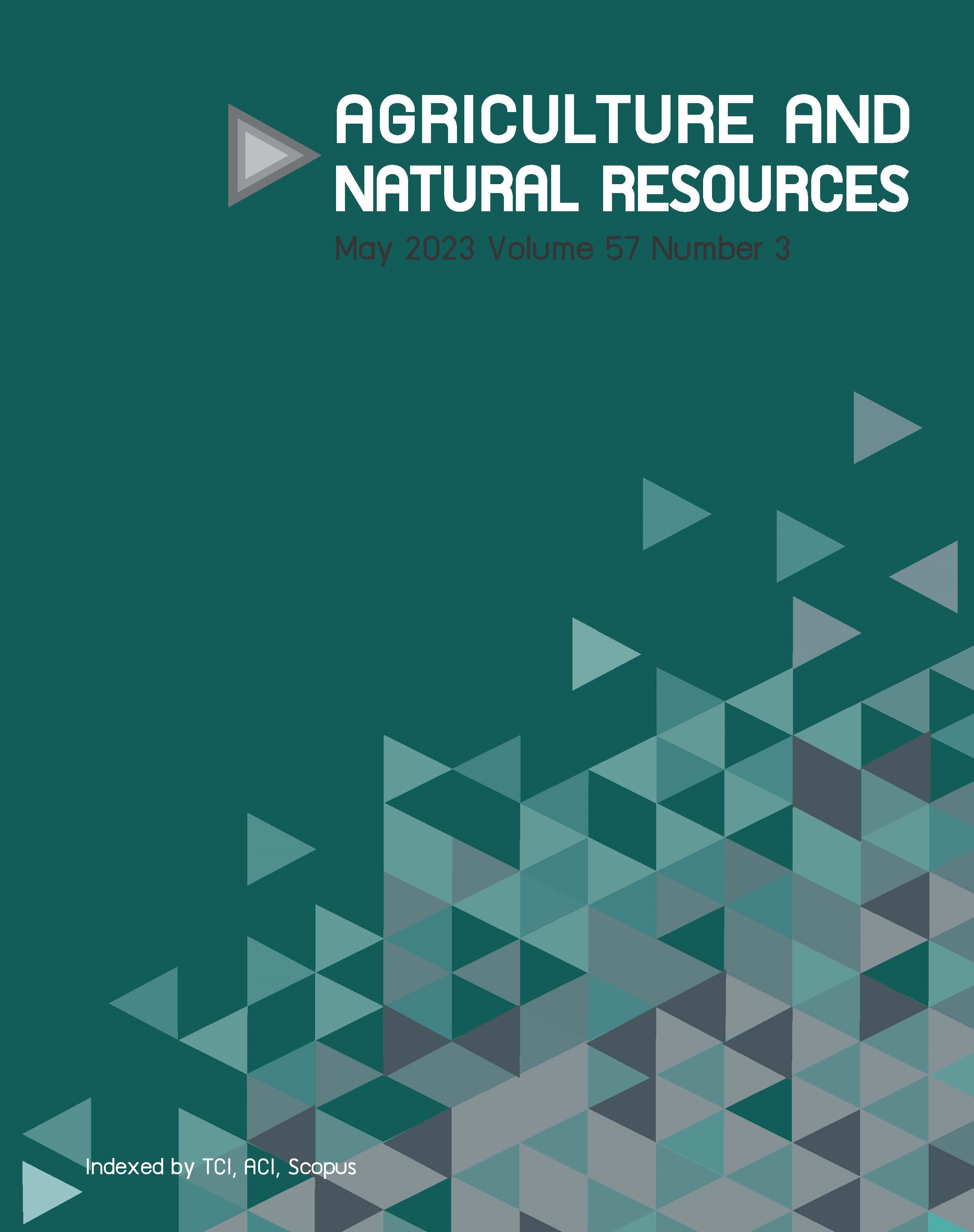Biological properties and potential probiotic bacteria isolated from honey collected in Chiang Mai, Thailand
Keywords:
Antibacterial activity, Antioxidant capacity, Honey bacterial isolates, Probiotic potential, Raw honeyAbstract
Importance of the work: Exploring the physicochemical and biological properties of probiotic bacteria provides insights into the quality of honey from Chiang Mai, one of Thailand’s important honey-producing sites.
Objectives: To explore the quality and biological potential of local raw honey produced in Chiang Mai province.
Materials & Methods: The quality and potential were investigated of four nonprocessed stingless bee honey (SH) and four honeybee honey (HH) samples locally collected from several districts in Chiang Mai province, Thailand. Assessment consisted of high-performance liquid chromatography and dinitrosalicylic acid method for sugar quantitation, Bradford’s protein assay for soluble protein content, 2,2-azino-bis-3-ethylbenzothiazoline-6-sulfonic acid antioxidant assay and disc diffusion assay for antibacterial properties. Additionally, the bacteria from natural honey were isolated, characterized and evaluated for their probiotic potential.
Results: Chiang Mai’s local honey had potent bioactivities. Though the physicochemical properties of the examined honey varied among samples, the glucose-to-fructose ratio was significantly higher in HH compared to SH. Both the SH and HH samples were antioxidative and antibacterial. Aside from the properties of the honey samples themselves, the natural bacteria from honey were isolated and characterized for potential utilization. Some of the honey bacterial isolates had promising properties as probiotics.
Main finding: Chiang Mai’s local, non-processed honey types varied in quality and biological activity, as well as serving as a reservoir of environmental bacteria in the Bacillus/Priestia genera, some of which can be further utilized in food applications.
Downloads
Published
How to Cite
Issue
Section
License
Copyright (c) 2023 Kasetsart University

This work is licensed under a Creative Commons Attribution-NonCommercial-NoDerivatives 4.0 International License.
online 2452-316X print 2468-1458/Copyright © 2022. This is an open access article under the CC BY-NC-ND license (http://creativecommons.org/licenses/by-nc-nd/4.0/),
production and hosting by Kasetsart University of Research and Development Institute on behalf of Kasetsart University.







